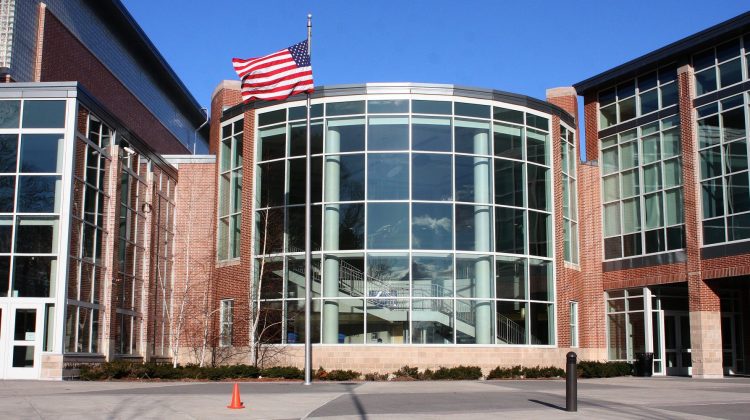High-school absenteeism jumps from 19% to 26% since COVID; elementary-school rate doubles
SWAMPSCOTT — The School Committee is discussing plans to improve the district’s academic performance and attendance levels after seeing a “downward trend” in standardized testing scores and a 26% high-school chronic-absenteeism rate.
Director of Teaching and Learning Jean Bacon presented the committee with a slideshow highlighting the district’s MCAS test scores from 2019 until 2023. In 2019. Bacon said, 72% of elementary-school students in Swampscott met or exceeded expectations in their MCAS English exams — this year, only 55% of students met or exceeded expectations in English standardized tests.
From 2022 until 2023, however, elementary scores trended upward again, jumping from 51% to 55% of students meeting or exceeding expectations. Bacon said the jump was likely the result of new training and curriculum changes.
“Elementary started to have some improvement from our post-COVID first-year-back low… Last year we extended our early-literacy program up through grade three,” Bacon said. “We did teacher training and bought them new materials and they did that last year, and we also piloted a new phonemic-awareness program at early elementary, which wouldn’t necessarily have impacted those results, but those are some of the changes we’re making in literacy. We hope we’re on an upward trend with literacy at the elementary levels.”
On the middle-school level, English MCAS scores dropped from 58% in 2019 to 45% in 2023, and at the high-school level, there was a 9% reduction in students who met or exceeded expectations, from 67% in 2019 to 58% in 2023.
Although elementary schools in Swampscott saw a 9% increase in MCAS math scores between 2019 and 2023, middle-school math scores fell from 58% of students meeting or exceeding expectations to 42% of students meeting or exceeding expectations between 2019 and 2023. At the high-school level, 73% of students met or exceeded expectations in math in 2019, and only 56% of students met or exceeded expectations on their 2023 math MCAS scores.
“The middle-school results were a little bit surprising because last year in middle school, we also implemented a new math curriculum and teachers participated in training and we were kind of surprised that the results were flat and we didn’t see any kind of improvement,” Bacon said.
Bacon said that Swampscott Public Schools is starting to lose its competitive edge compared to state averages in almost every subject.
“We’ve lost ground in our competitive advantage over the state because historically, we did tend to be 15 to 20 points better than the state in terms of the proportion of our kids who are meeting exceeding expectations,” Bacon said. “With the exception of high-school biology, that advantage has really shrunk, and that’s something that’s a concern and that we need to pay attention to.”
It’s not only MCAS scores that have suffered since the COVID-19 pandemic. Bacon reported that rates of chronic absenteeism, which occurs when a student misses 10% of school days in a year due to unexcused absences, have risen at every academic level between 2019 and 2023.
Prior to the pandemic, Bacon said roughly 8% of students in kindergarten through eighth grade were chronically absent — that number doubled in 2023. At the high-school level, 19% of students were chronically absent in 2019 and 26% of students were in 2023.
Bacon said that there tends to be an MCAS performance gap of roughly 25% between chronically absent students and students who are not chronically absent.
School Committee member Glenn Paster said that while he was concerned about the downward trend in MCAS scores, and even more concerned with Swampscott High School Principal Dennis Kohut’s statement that students had not “fully recovered” from remote learning during the pandemic, he did not want the district to begin using the MCAS test as a basis for its curriculums.
“From a perspective of a district, we want to educate everybody, and whether people want or their kids want to go to college, go to work, go to the armed forces. That’s our job. It’s our job to help them get there,” Paster said. “I just don’t want everyone teaching to the damn test.”

